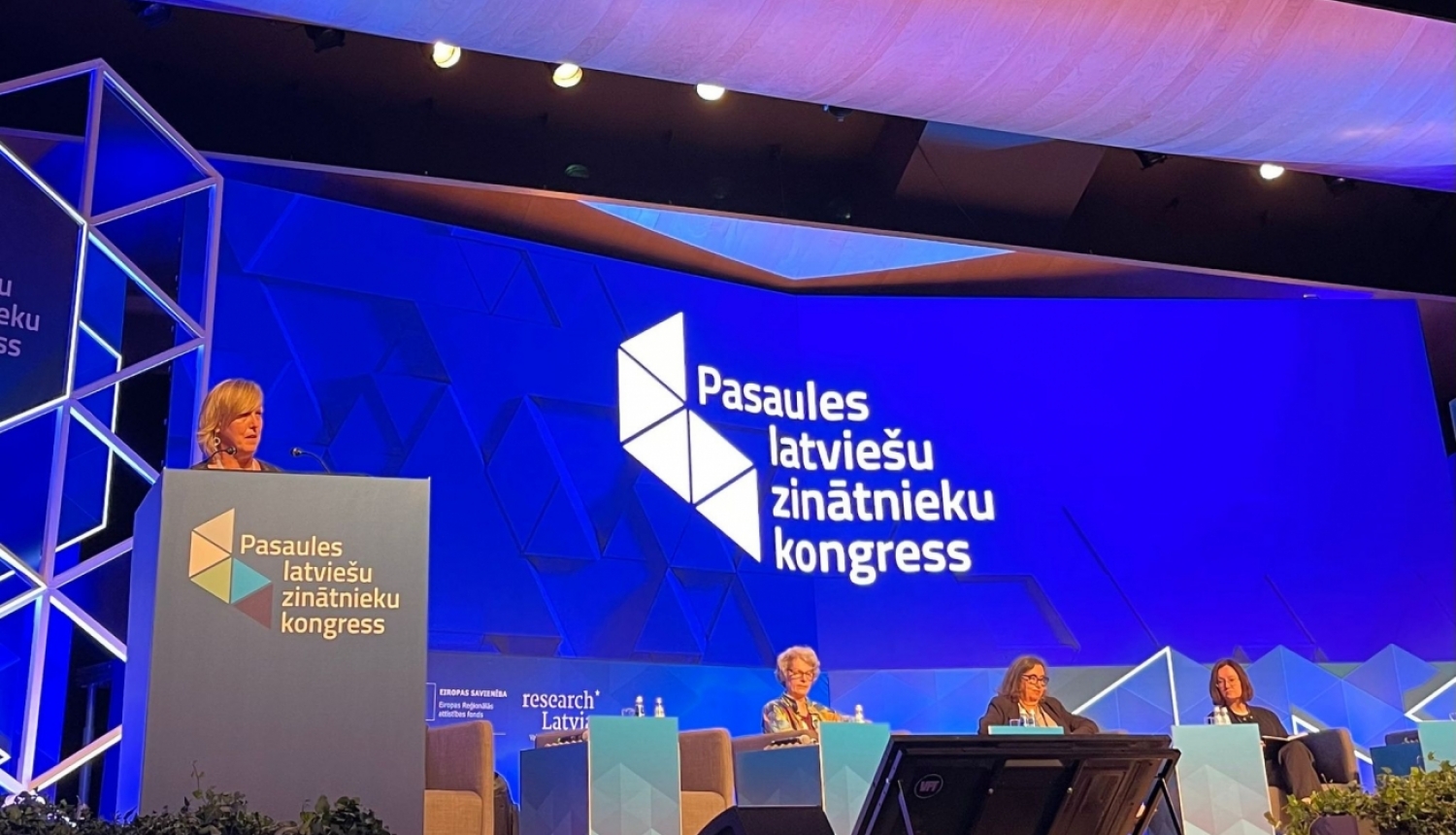At the 5th World Congress of Latvian Science "Research Latvia", the question of increasing the contribution of research to the national economy, society and policy makers was prevalent in several sessions. In a session dedicated to research impact, experts from the U.S. and South Africa shared their experiences on how to measure the impact of science and how to demonstrate to the public that investment in research and innovation brings significant practical benefits to every citizen.
How to measure the impact of science?
In the research ecosystem, the results of researchers are most often evaluated using indicators related to scientific publications – the number of publications in the most prestigious journals and the number of references in other researchers’ work. In the discussion, the experts invited researchers to consider the impact of science more broadly and to think about how best to reach their audience. For example, to affect policy, scientists can collaborate with think tanks, prepare informational one-pagers, or simply proactively engage with policymakers in their field. A scientist's contribution can be measured, for example, by counting references to research in policy documents. However, experts pointed out that a complete picture can only be obtained by listening to individual researchers’ impact stories. "If we wait for perfect indicators of research impact, then we will achieve nothing", said Glenda Cruz, executive director of the South African Centre for Science, Technology and Innovation.
Measuring societal impacts is more complex
The impact of science on society can be wide and varied, making it difficult to measure. References to research in the media and social networks (the so-called "Altmetrics" movement) can be measured, but they nevertheless give a narrow and rough idea of the contribution of research to society. The British Research Excellence Framework (REF) was singled out as a good example of impact measurement in which scientists are asked to describe the benefits of their research for society. The evaluation of these stories, carried out by independent scientific experts, is tied to research funding.
Carrot and stick
To drive positive change in society, there must be clear and thoughtful incentives at all levels. Researchers first need sufficient scientific capacity, which requires adequate public funding for science, targeted toward the most outstanding research projects. The public must demand results from policymakers on funds invested in research. Policymakers need to incentivize universities to promote the impact of science. In Latvia, similar to the British REF, this is done through the international evaluation of scientific institutions. Universities can support researchers in achieving impact, for example by creating departments for the commercialization and communication of science. Researchers who have successfully contributed to changes in the world should be appreciated and rewarded for their merits. The world-famous Nobel Prize is actually an award for research impact. "It's not just about measurement. The story is broader and encompasses science communication," recalls Julia Melkers, director of the Center for Organizational Research and Design at Arizona State University.
Julia Melker, director of the Center for Organizational Research and Design at Arizona State University, Diana Hicks, professor at the Georgia Institute of Technology's School of Public Policy, Glenda Cruz, executive director of the South African Center for Science, Technology and Innovation, and Agrita Kiopa, vice-rector for science at Rīga Stradiņš University, participated in the panel discussion on the impact of science. Within the framework of the event, experts in the impact of science also met with the Minister of Education and Science Anda Čakša to discuss the enhancement of the impact of research in Latvia.
The World Congress of Latvian Scientists has been held in Latvia since 1991, and four congresses have been held thus far, bringing together many participants from both Latvia and abroad. In 2018, 750 participants from 24 countries took part in the 4th World Congress of Latvian Scientists. The main objectives of the Congress are to provide opportunities to exchange views on current scientific problems, to establish and strengthen contacts of Latvian scientists with scientists of Latvian origin from different countries, as well as to draw the attention of the public, media and politicians to the importance of Latvian science and the achievements of scientists.
Photo: Toms Norde, Gatis Orlickis / Ministry of Education and Science
The 5th World Congress of Latvian Scientists "Research Latvia" is implemented within the framework of the ERDF project No. 1.1.1.5/17/I/002 “Integrated national level measures for strengthening interest representations for the research and development of Latvia as part of the European Research Area”.




